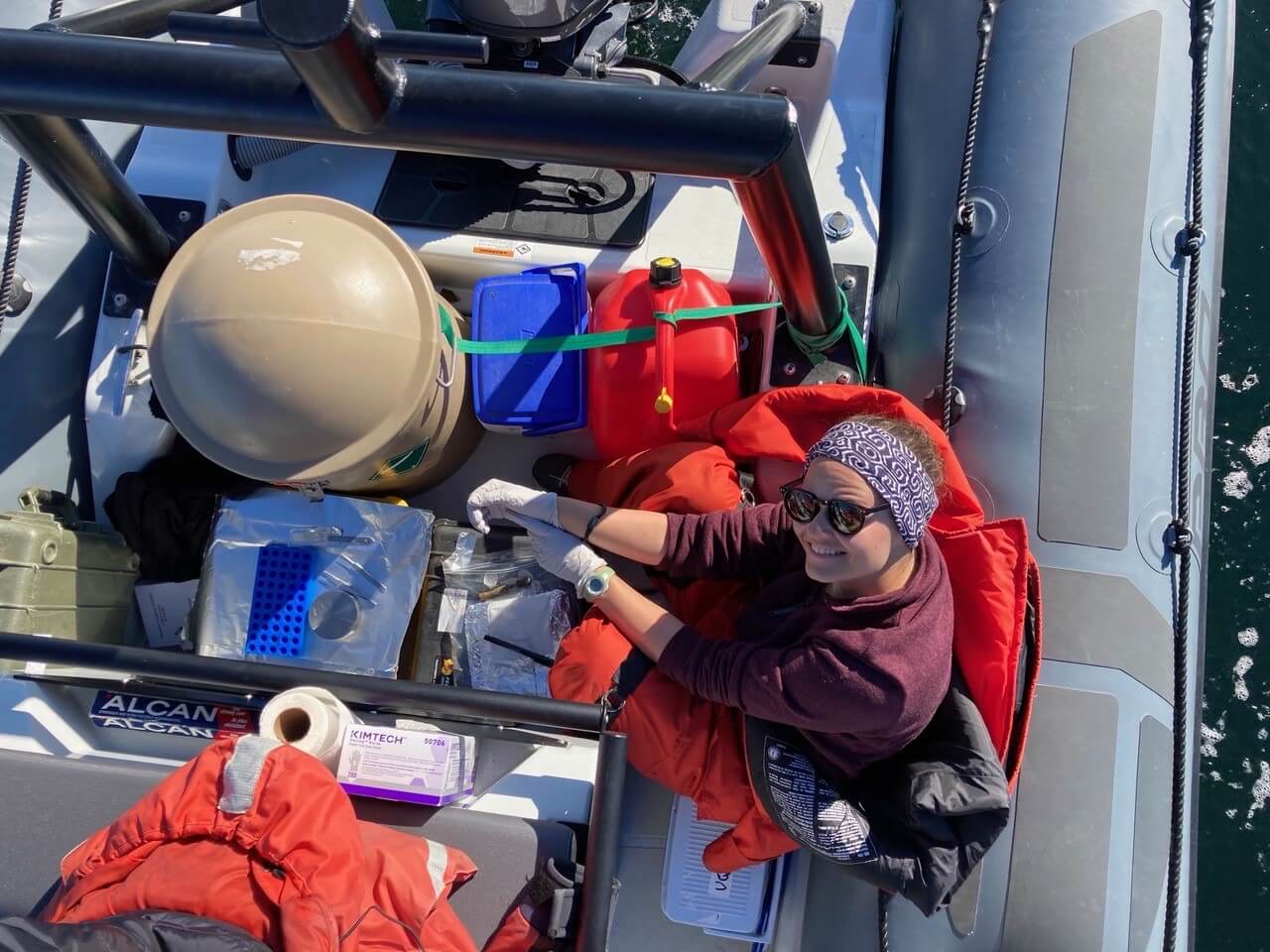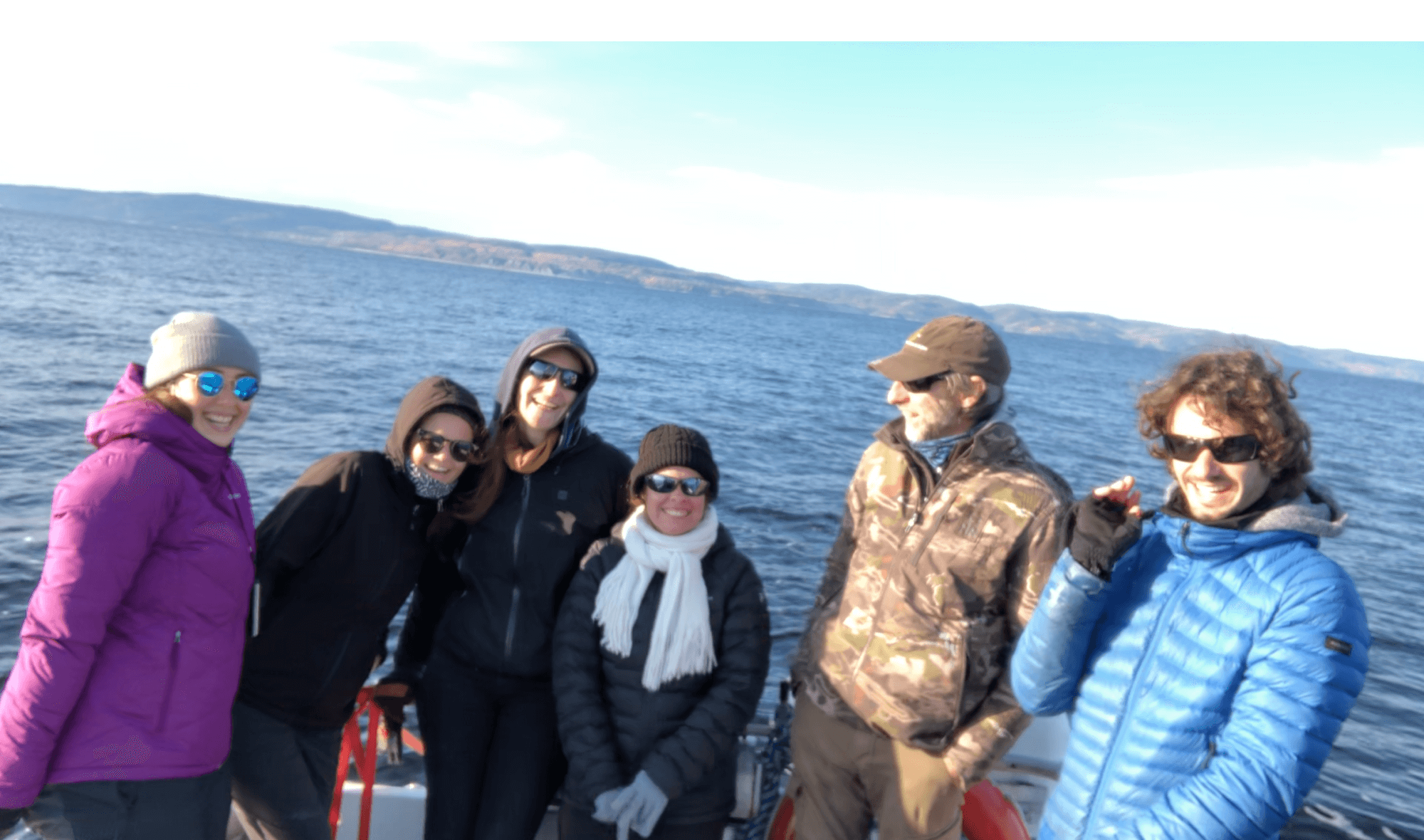To work with whales, Meredith’s journey took her to California, Michigan, Scotland, and ultimately to Quebec! Meredith Sherrill is a student at the Université du Québec à Montréal (UQAM), where she is completing her PhD on belugas. In the context of International Women’s Day, she shares her experience, the challenges she has faced and her vision on women’s place in science.
Her research project consists of developing a method based on the scaled mass index (SMI) to estimate energy reserves in St. Lawrence belugas and associate these data with their lipid profiles. When she discusses the topic, you can immediately see her eyes light up. She also hopes that she might inspire young girls who also want to work in science.
Tell us a little about your background.
I think my background might be a little different. I always loved science and I did my bachelor’s in Michigan, with an emphasis in cell biology and biochemistry. Toward the end of our studies, we were all required to do an internship and I was not particularly interested in working in a lab all summer. So I contacted an organization called The Marine Mammal Center, which is not far from where I grew up in California. I asked them if they had anything I could do. I lucked out and was offered an opportunity to work with a veterinary student! This was my introduction to the world of marine mammals.
Then, I did my master’s degree in marine mammals at the University of St Andrews in Scotland. After graduating, I landed several jobs, including a stint with California’s marine mammal emergency network.
How did you discover the world of marine mammals?
It’s a bit because I grew up in California, where there were always seals and sea lions. When I was in elementary school, I fell in love with marine mammals, but I always figured it was “too cool” of a profession, meaning it wasn’t really realistic. It was after completing my bachelor’s that I realized that I didn’t want to work in a lab full time and I told myself that I was going to give it a shot.
Do you have a memory related to your PhD that you would like to share with us?
I have two memories that I would like to share. Once, we were on the research boat and we took a break for about fifteen minutes to observe. There were marine mammals everywhere: humpbacks, minke whales, porpoises, belugas… I just like listening to them blow; being close to these giant animals is simply incredible.
Another slightly different example is a day when we went out as a team. We launched drones and carried out photo-ID and biopsy work… It was really impressive to see the whole team working together. We were playing musical chairs a bit, but it worked!
What kinds of challenges do you face?
From a scientific perspective, what we are trying to do is quite innovative and new, because there are not many references. When I have questions, sometimes it’s hard to find someone who has the answer. For me, it’s a real challenge, because I want the job to be done well. It’s not easy to take methods that are designed for large whales and adapt them for belugas. Scaled mass index wasn’t really something that had been done before. Sometimes it’s stressful, and it puts a lot of weight on your shoulders!
How do you see the place of women in science and how can we encourage them to get more involved in science?
I think women are still underrepresented in science and math in general, but I do feel that things are changing. My experiences are different from those of women who are younger or those who are ten or twenty years older. It’s evolving very quickly.
I also think it’s important to see other women in science, especially in leadership or management positions. Slowly, things will continue to change. We must continue to encourage them and show them that anything is possible.






